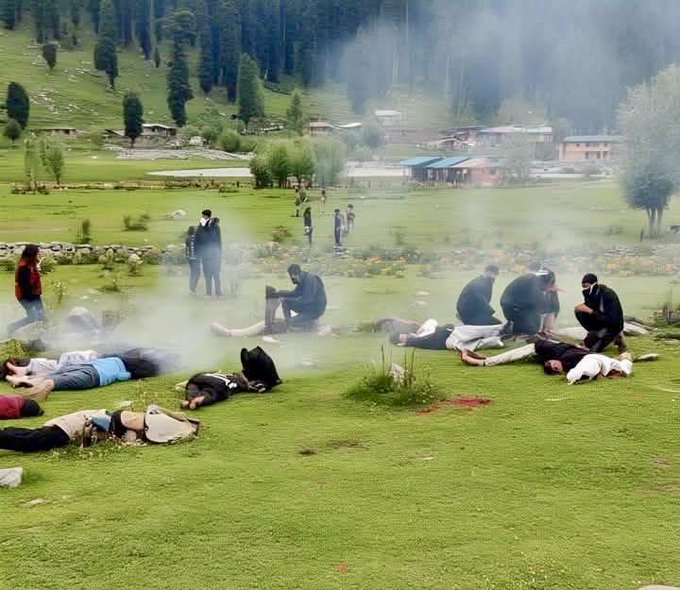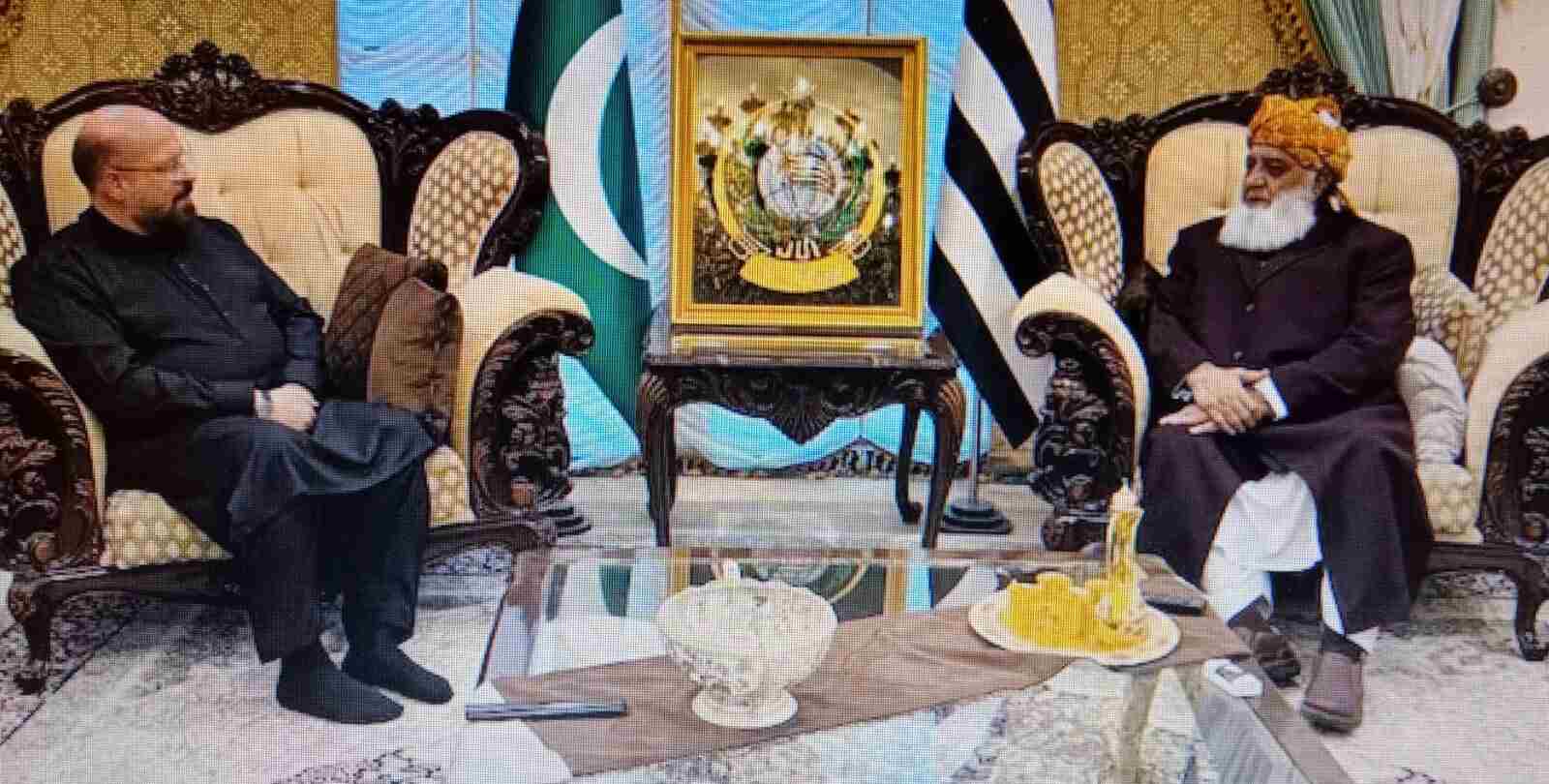More than two months before the tragic Pahalgam massacre, Indian intelligence agencies intercepted alarming information pointing to an unprecedented alliance—a collaboration between Hamas and Pakistani terror outfits, facilitated by Pakistan’s notorious intelligence agency, the ISI, within Pakistan-occupied Kashmir (PoK). The revelations pointed to a calculated effort to intensify anti-India sentiment and reinvigorate the separatist campaign in Kashmir.
Despite the credible intelligence inputs, the failure to act on time stands out starkly. Experts believe that timely action might have thwarted the devastating attack that later shook the Valley.
A controversial conference in PoK
On February 5, Hamas representatives, led by Khalid Al-Qadoumi, the group’s envoy in Iran, made their first official entry into PoK to attend the ‘Kashmir Solidarity and Hamas Operation Al Aqsa Flood Conference’ in Rawalkote. Hosted at Shaheed Shabir Stadium, the event was anything but subtle—it featured petal showers, grand processions, and an open show of unity between Hamas, Jaish-e-Mohammad (JeM), and Lashkar-e-Taiba (LeT) operatives.
Also in attendance was Maulana Fazlur Rehman, chief of the Islamist political outfit Jamait Ulema-e-Islam (F), alongside other senior extremist figures. The atmosphere was celebratory—yet the messaging was dangerously clear.
Terror on Parade
Videos obtained by Indian intelligence reveal Hamas delegates arriving in SUVs, escorted by JeM and LeT operatives on motorcycles and even horses, waving Hamas flags and signaling a symbolic march of aggression.
Among the key figures present were Talha Saif, brother of JeM chief Masood Azhar, and Jaish commander Asgar Khan Kashmiri. Their presence underscored the deepening nexus between Middle Eastern and South Asian jihadist networks, a development that Indian officials now consider a major escalation.
Open Threats and Strategic Declarations
The conference was marked by a shocking declaration from a senior JeM member, who announced a strategic alliance between Hamas and Pakistan-based militants. From the stage, he declared:
“The Mujahideen of Palestine and Kashmir have united. It’s time to shed blood in Delhi and separate Kashmir from India.”
Intelligence officers now believe this open incitement was a precursor to coordinated terror actions, including the massacre that unfolded in Pahalgam weeks later.
The conference coincided with Kashmir Solidarity Day, an annual event in Pakistan aimed at expressing support for separatist movements in Kashmir. On the same day, Pakistan Army Chief General Asim Munir, speaking in Muzaffarabad, provocatively stated: “All of Kashmir would one day be part of Pakistan.”
In contrast, Prime Minister Shehbaz Sharif made measured diplomatic comments about resolving the conflict through talks—a juxtaposition Indian officials criticized as blatant hypocrisy.
Just days before the massacre, General Munir intensified tensions with remarks that highlighted religious differences between India and Pakistan, while praising those “fighting” in Kashmir. These comments, now seen in hindsight, have been linked by intelligence officials to the rising momentum for violence that culminated in Pahalgam.



